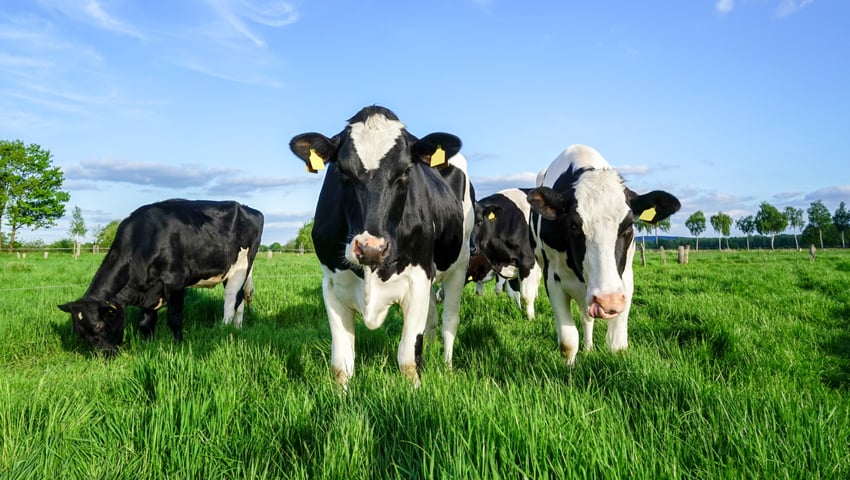FOLLOWING years of prevarication, the NFU has announced that it supports the adoption of GWP*, the metric that accurately characterises the warming role of enteric methane.
They say that “We need to make sure that greenhouse gas emissions are calculated in as accurate a way as possible to help producers to understand and reduce emissions as much as possible. GWP100 is the accepted metric for measuring greenhouse gases but has been acknowledged to not be as accurate when measuring the temperature response of short-lived emissions such as methane, and does not account for its removal from the atmosphere.
“GWP* provides a measure of the behaviour of methane in the atmosphere and its net contribution to global warming to a greater degree of accuracy. The metric takes into account the removal of short-lived gases from the atmosphere.”
In 2021 the IPCC stated clearly that GWP* is a more accurate metric for measuring the warming activity of stable sources of short-lived GHGs such as methane. AR6 Ch7 pg123 says “Expressing methane emissions as CO2 equivalent emissions using GWP-100 overstates the effect of constant methane emissions on global surface temperature by a factor of 3-4 […] while understating the effect of new methane emission source by a factor of 4-5’.”
Typically, with GWP*, the value of the methane element of a farm carbon footprint will fall by around 70%.
For many working in land use the NFU’s support for GWP* has come very late.
Roland Bonney is a founder of FAI Farms and is now the Executive Chair of Agrolo. He has worked alongside the Oxford Martin team, led by Professor Myles Allen, to promote the science since 2018.
He said “I’ve always said that truth will out – and GWP* is the best tool we have to accurately measure warming or cooling from ruminant methane. We need to recognise that the science around climate and carbon is still emerging, so it’s essential that organisations and governments pay attention to new developments, and find ways to rapidly adapt to new information. We immediately recognised the importance of GWP* and have supported the Oxford Martin team in communicating the science. As farmers and land managers we know that we need to step up to meet climate and biodiversity challenges – GWP* helps us to make sense of where our focus needs to be.”
ffinlo Costain is the Chief Editor of 8.9ha. He worked alongside Mr Bonney and Professor Myles Allen and has advised the UK Committee on Climate Change, and government departments in England, Wales and Scotland on the role of agricultural greenhouse gases.
He said “It is essential that land use decisions are taken based on the best available information. GWP* shows that methane is an important greenhouse gas, but that the role of enteric methane has been over-emphasised. It helps us to recognise that the key climate danger – as it is for other industries – is carbon emissions from burning fossil fuels. We must break the link between agriculture and fossil fuels, and fast – but we need to mitigate greenhouse gas emissions while also creating resilience to climate impacts such as extreme weather, drought, fire and disease migration, while regenerating biodiversity including soil health and water cycling. Ruminants are essential components of that story, and GWP* helps us to put the methane that they produce into a clearer context.” Mr Costain’s TEDx Talk is called “We can’t solve the climate crisis without cows”.
The NFU has now joined others, including Mr Bonney and Mr Costain, as well as former UK Environment Secretary, George Eustice MP, in calling for dual reporting, using the standard carbon footprint metric (GWP100), and the revised metric GWP*.
NFU Deputy President Tom Bradshaw said “Urgent action is needed now to improve productivity, conserve the carbon already in our pastures and grasslands, and store more carbon for the good of society.”
The NFU is calling for:
- A unified approach to dual accounting with government and industry reporting on emissions from agriculture at the national scale using GWP100 and GWP*
- Consistent and simple messaging to consumers on the temperature impacts from methane and the biogenic carbon cycle, including finding a more suitable way for the carbon footprint of a food product to be measured
- The impact of genetics and selective breeding on reducing methane emissions to be measured with GWP100 and GWP*
